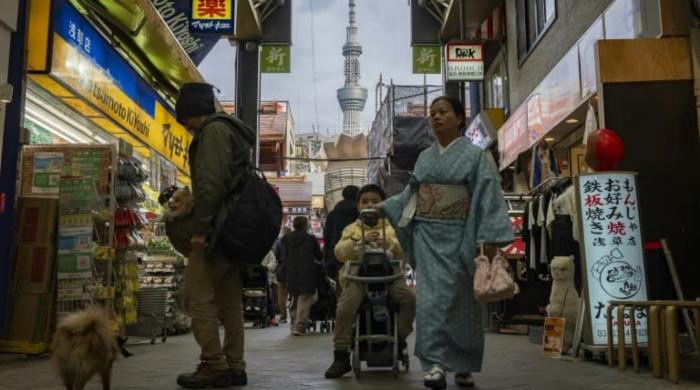Hong Kong: Unfounded online rumors warning that a huge earthquake will soon hit Japan, taking a toll on travel companies and airlines reporting less demand from concerned Hong Kings.
People from Hong Kong made nearly 2.7 million trips to Japan by 2024.
While it is impossible to know exactly when earthquakes will hit, fear -inducing predictions have spread widely among the city’s residents.
Some of the fake posts quotes a Japanese manga comic series released in 2021, which predicts a major natural disaster in July 2025 – based on the author’s dream.
Other positions give different dates, while a Facebook group claiming to predict disasters in Japan have over a quarter of a million members, mainly in Hong Kong and Taiwan.
“The prophecy of the earthquake has definitely caused a major change to our customers’ preferences,” said Frankie Chow, head of Hong Kong Travel Agency CLS Holiday.
Chow told AFP that in March and April his company received 70-80% fewer trips on travel to Japan than last year.
“I’ve never experienced this before,” said Chow, who is also running the booking website Flyagain.la.
While some people changed their destination, others didn’t dare travel, ”he said.
Mild to moderate earthquakes are common in Japan, where strict building codes minimize damage, even from larger shakes.
But the nation is no stranger to major disasters, including in 2011, when a size-9.0 earthquake triggered a tsunami leaving 18,500 people died or missing and caused a devastating degradation at the Fukushima nuclear plant.
Earthquakes are very rarely felt in Hong Kong, but some people are easily spooked by disinformation, Chow said.
‘Megaquake’ warning
Last month, Tokyo’s Cabinet Office on Social Media Platform X said: “To predict earthquake by date, time and place is not possible based on current scientific knowledge.”
An official in the Cabinet Office told AFP that X Post was part of his usual information division on earthquakes.
But Japan’s Asahi Shimbun Daily reported that it was responding to prophecies that jumped up online after a Japanese government panel released a new estimate of the likelihood of a “megaquake” in January.
The panel said the chance of a massive earthquake along the underwater Nankai trough south of Japan in the next three decades had marginally risen to 75-82%.
This was followed by a new damage estimate in March from the Cabinet Office that said a Nankai -Trye -megaquake and tsunami could cause 298,000 deaths in Japan.
Despite being a routine update of a previous 2014 figure, it seems that the estimate has been Funned Tourists’ fears.
A YouTube video with a feng shui master who encourages viewers not to visit Japan, published by the local media offering HK01, has been viewed more than 100,000 times.
Don Hon, one of Hong Kong’s 7.5 million inhabitants, does not quite believe in the online claims, but has still been influenced by them.
“I just want to take it as a caution and won’t make any special plans to travel to Japan,” said the 32-year-old social worker.
And if a friend should ask him to visit Japan in July, Hon “may be suggesting to go somewhere else”.
‘No need to worry’
Hong Kong-based Greater Bay Airlines has reduced flights to Japan’s southern Tokushima region, a local tourist employee told AFP.
“The company told us that demand has quickly fallen in the midst of rumors that there will be a major earthquake and tsunami in Japan this summer,” she said.
“Three scheduled weekly return flights are reduced to two rounds of the week from May 12 to October 25.”
The airline also reduces its flights to Sendai in the northern region of Miyagi.
“There’s no need to worry,” Miyagi’s governor Yoshihiro reassured Murai travelers, adding that Japanese people are not fleeing.
But “If unscientific rumors on social media affect tourism, that would be a big problem,” he said last month.
According to the Japanese National Tourism Organization, the number of visitors to Hong Kong in March 208,400-nest was 10% year to year.
However, this decline was partly due to the Easter Easter holidays, which started in mid -April this year, instead of March, they said.
Hong Kong-based Egl Tours has not seen a massive fall in customers traveling to Japan, said its CEO Steve Huen Kwok-Chuen.
But recent bookings at its two hotels in Japan show fewer from Hong Kong guests, while the number from other global destinations remains stable.
In any case, in the probable case that the predictions do not happen, “people will realize that it is not true,” he said.



